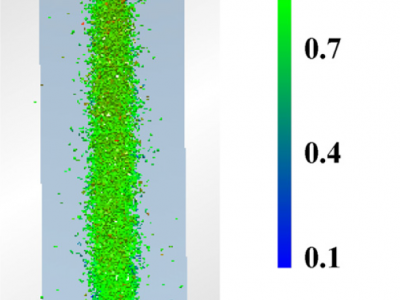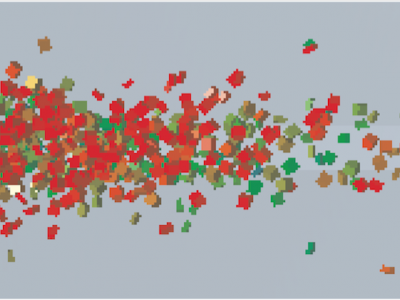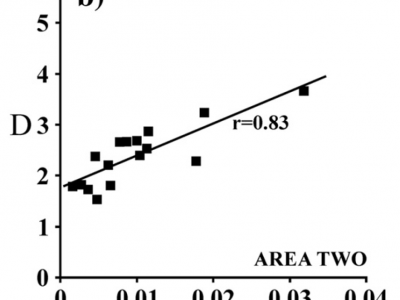- RESEARCHER
- Dr. Bruno Cagnoli & Dr. Antonio Piersanti
- INSTITUTE
- Istituto Nazionale di Geofisica e Vulcanologia, Italy
- DEPARTMENT
- Seismology and Tectonophysics
- TIMELINE
- 2017-2018
We simulate granular flows of angular rock fragments by means of EDEM to study the basal stresses that these flows exert on the subsurface. These granular flows have different grain sizes and different flow volumes and they model dense and dry rock avalanches that descend mountain valley with different widths. Stress data generate a linear relation between scaling parameters. Parameter D is a scaled particle agitation (where particle agitation is defined as any departure of particle motion from the downhill direction) that is responsible for the energy dissipation that governs flow mobility. Parameter Ψ has, at the numerator, grain size squared and, at the denominator, the cube root of flow volume multiplied by the channel width. This relation (that has been validated by laboratory experiments) is important because it links basal stresses with grain size, flow volume and channel width. For example, it shows that the larger the grain size (all the other features being the same), the larger the agitation of the particles and the larger the energy dissipation per unit of travel distance. Since these parameters are dimensionless, the linear relation is valid at any scale, either in the laboratory or in nature. Publications Cagnoli B., Piersanti A., (2018) Stresses at the base of dry and dense flows of angular rock fragments in 3-D discrete element modeling: Scaling of basal stress fluctuations versus grain size, flow volume and channel width. Journal of Volcanology and Geothermal Research, 349, 230-239.

Figure 1

Figure 2

Figure 3
EDEM is an indispensable tool to investigate granular flow physics.